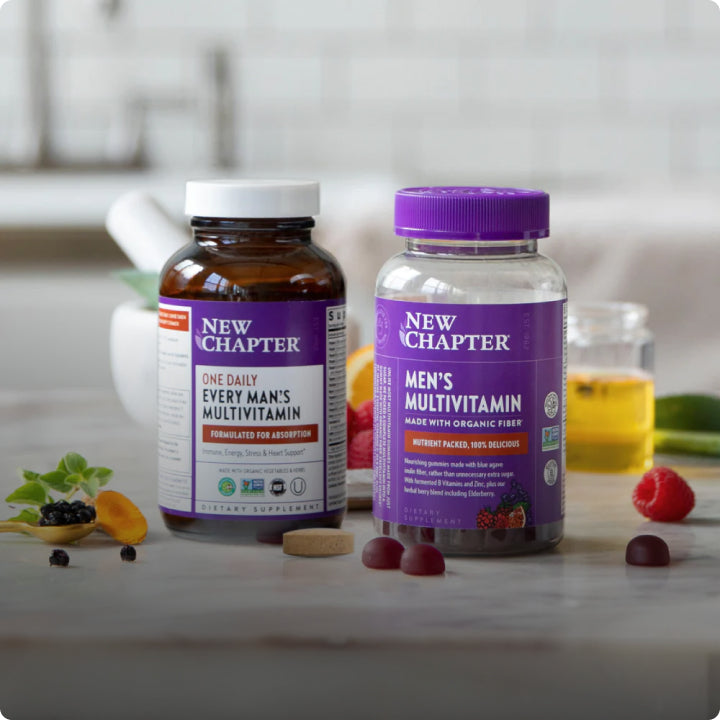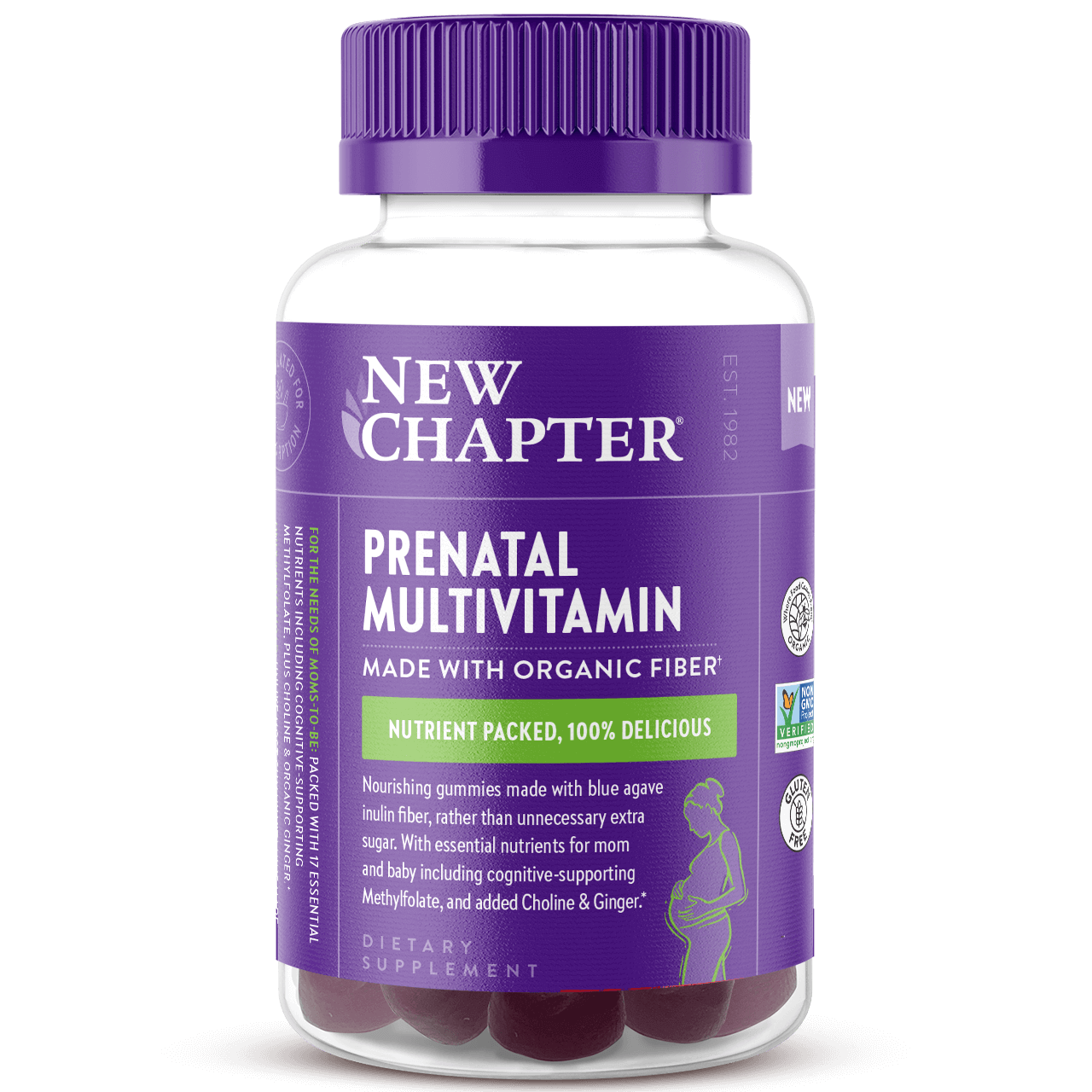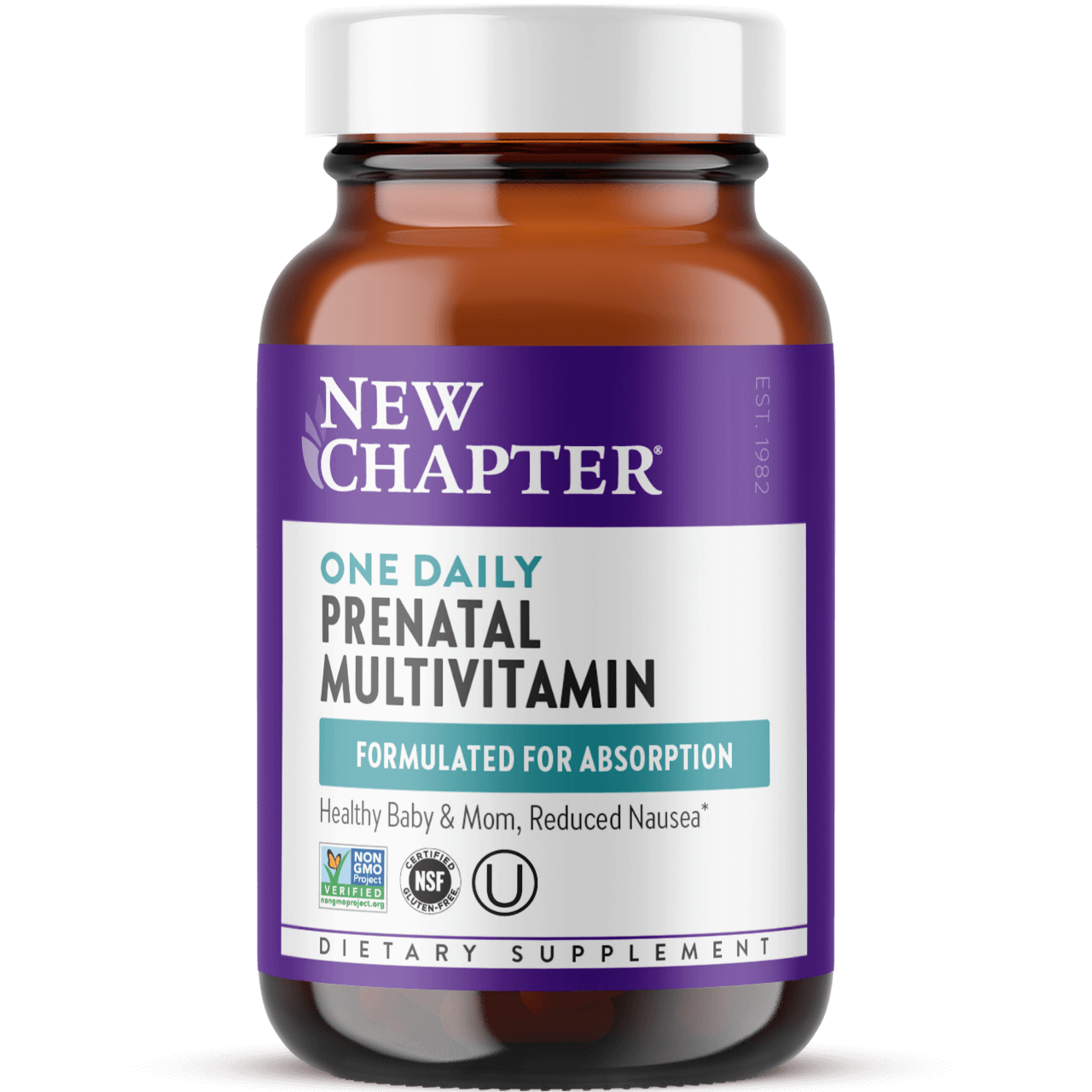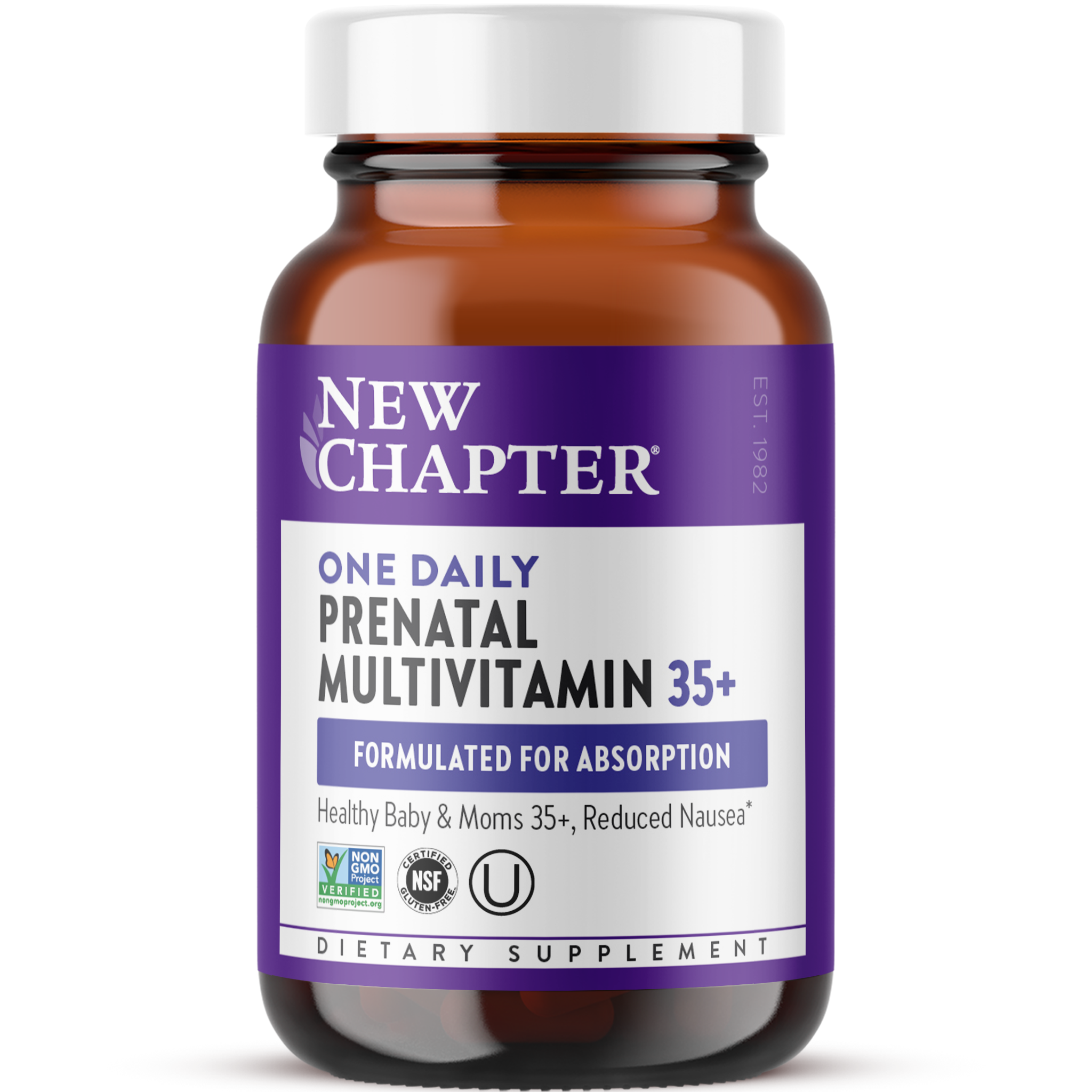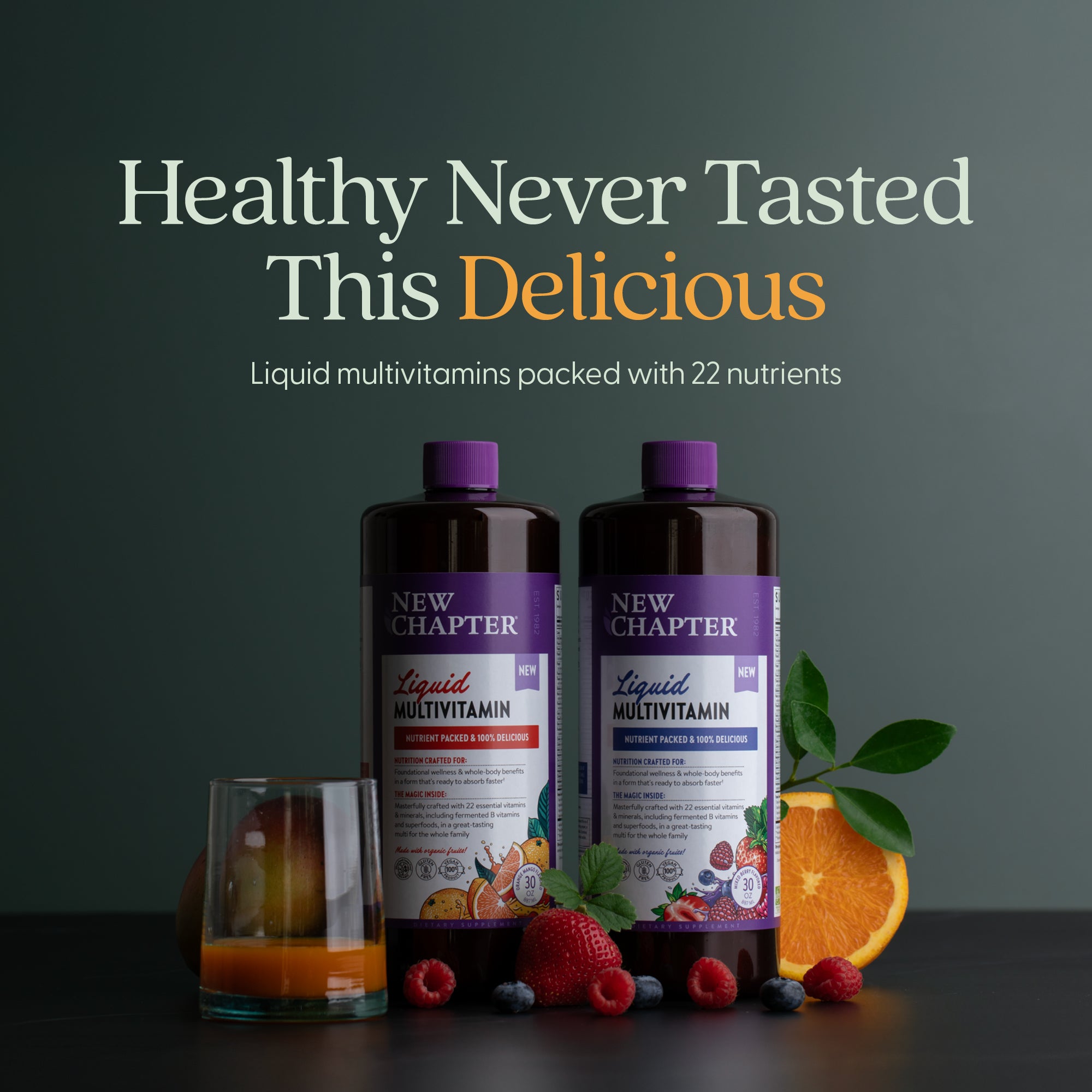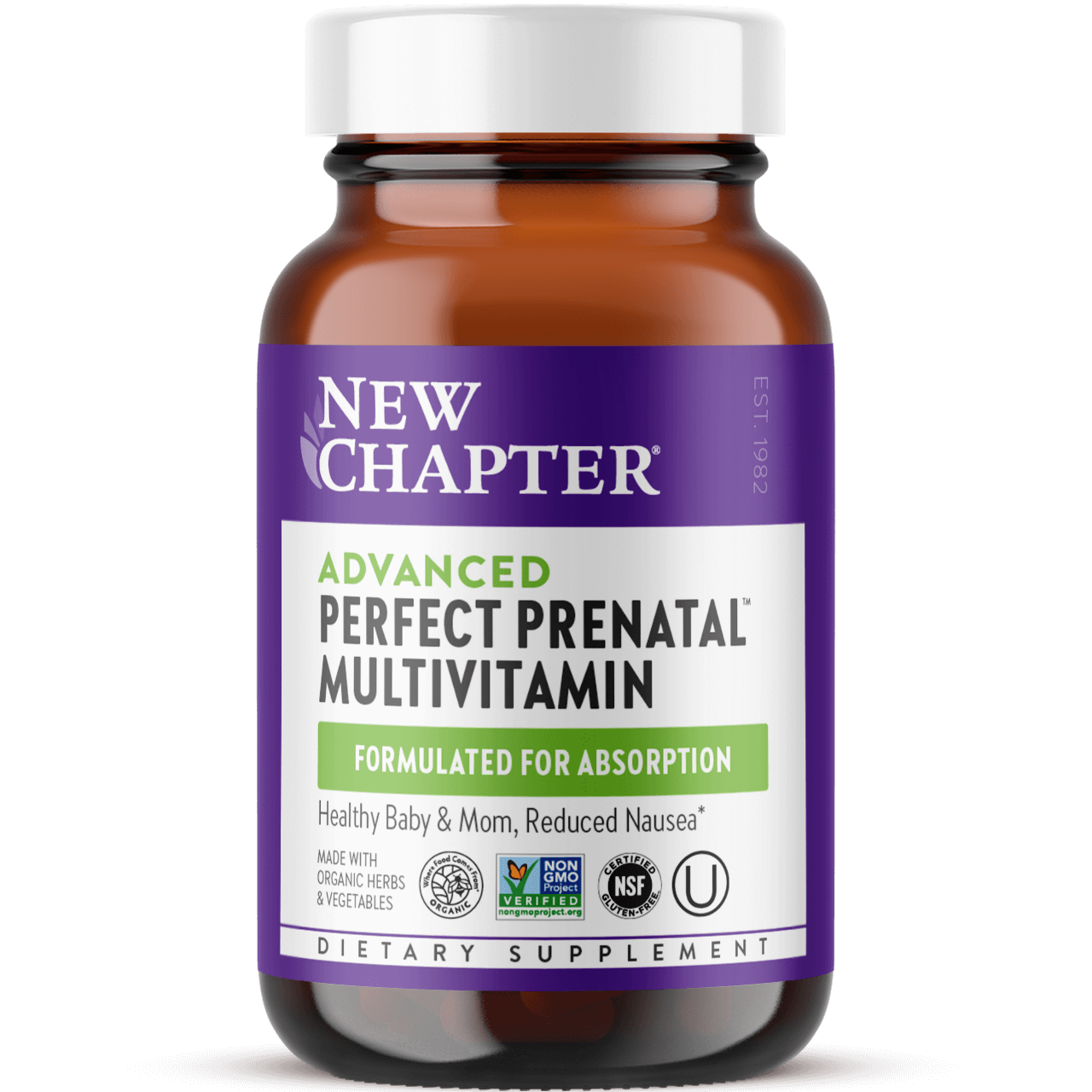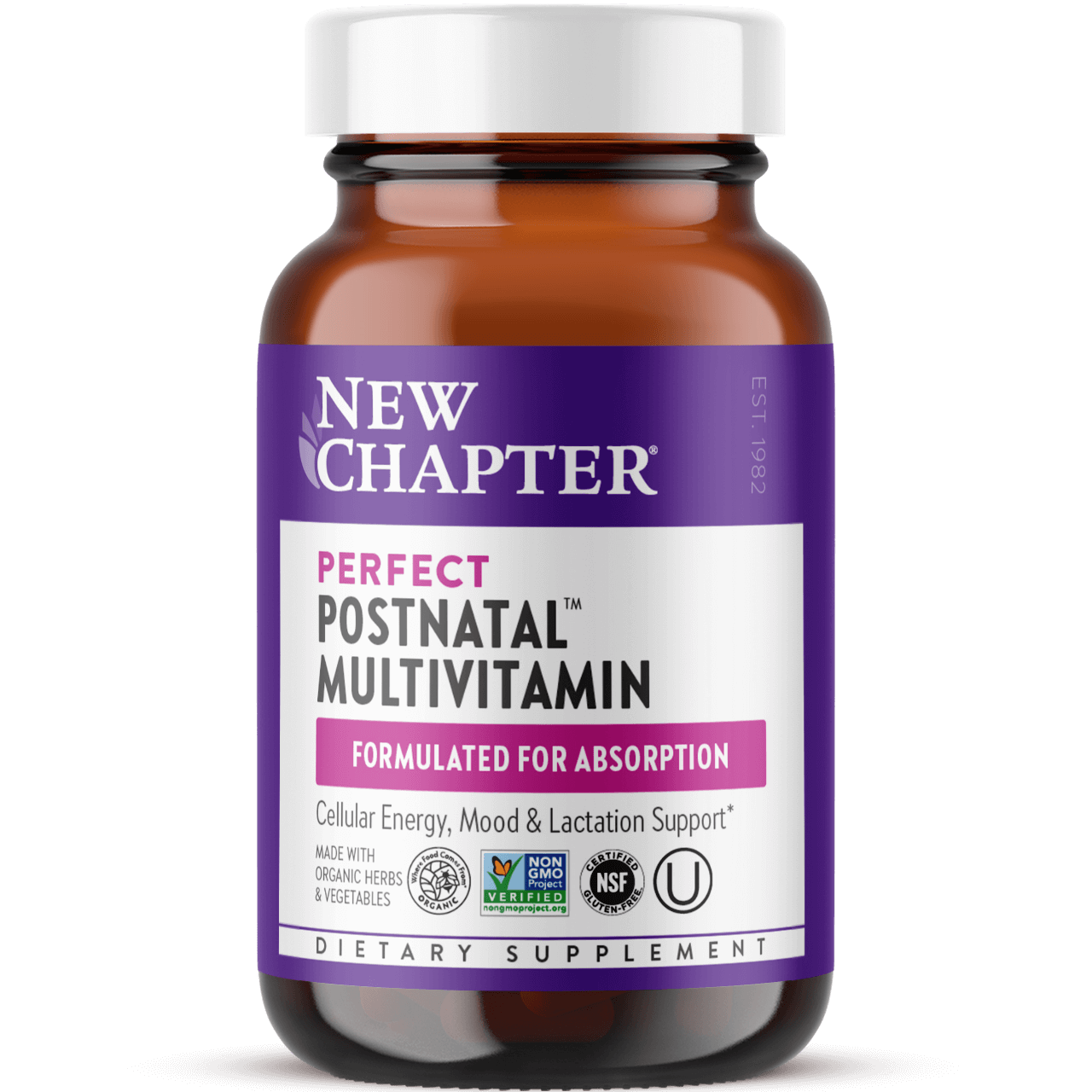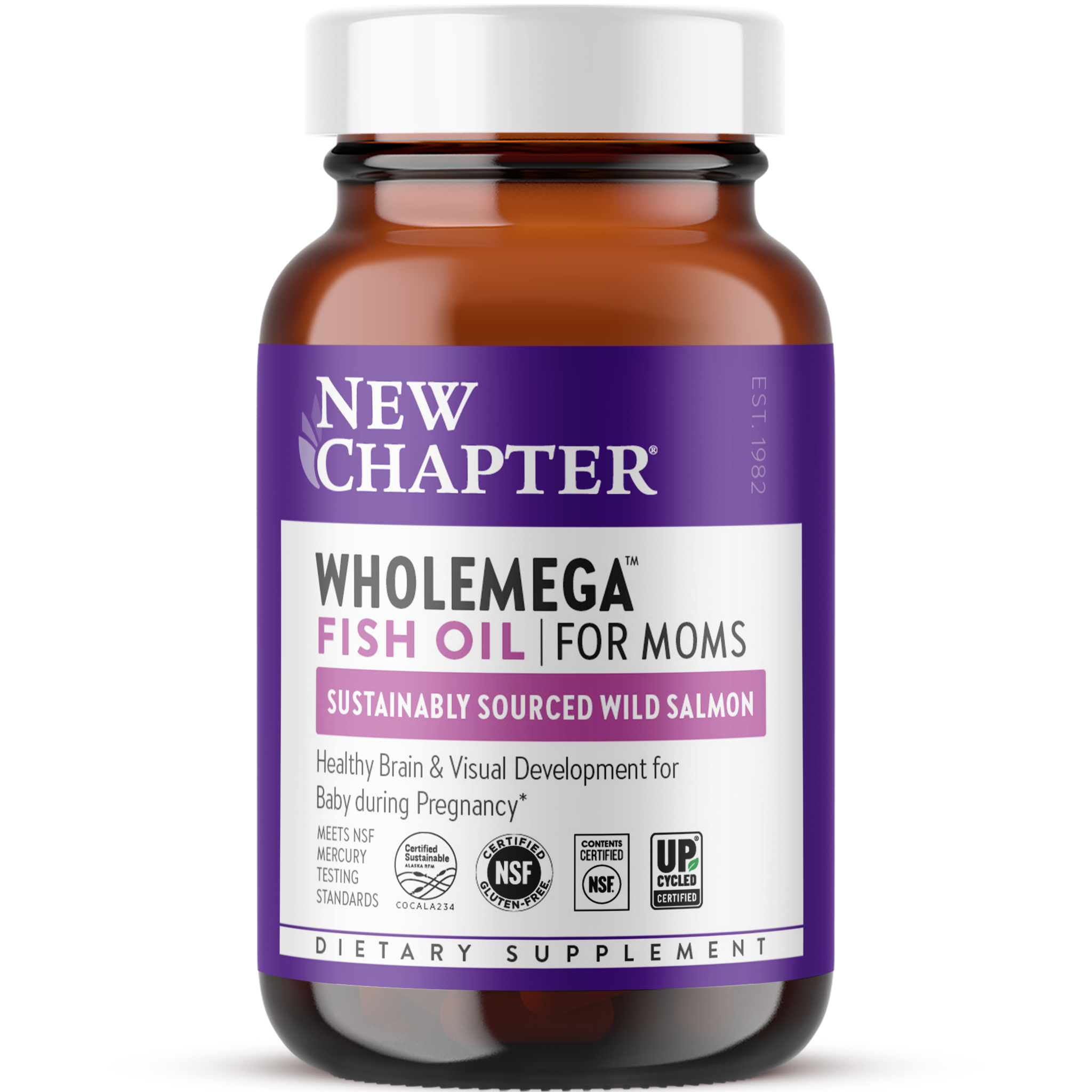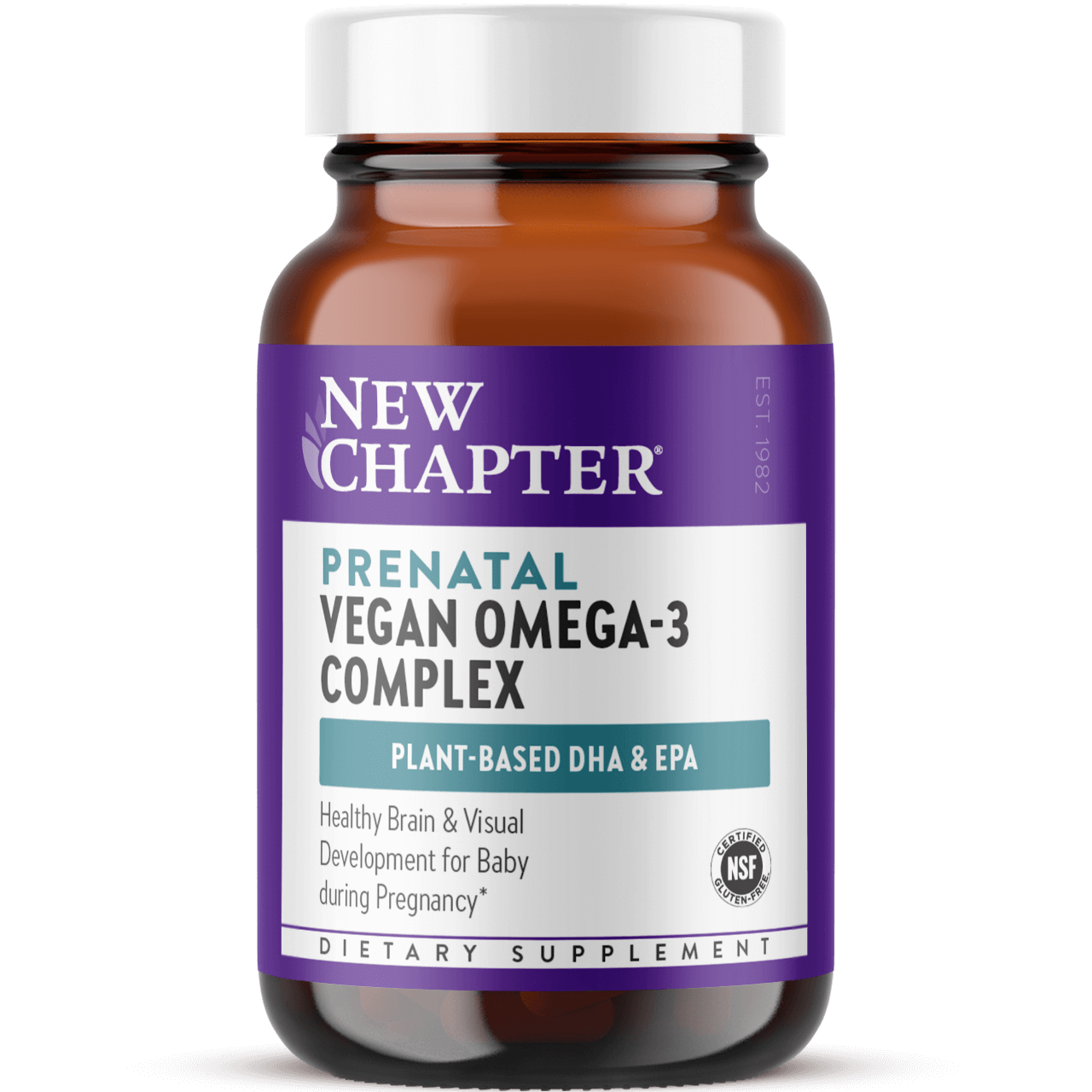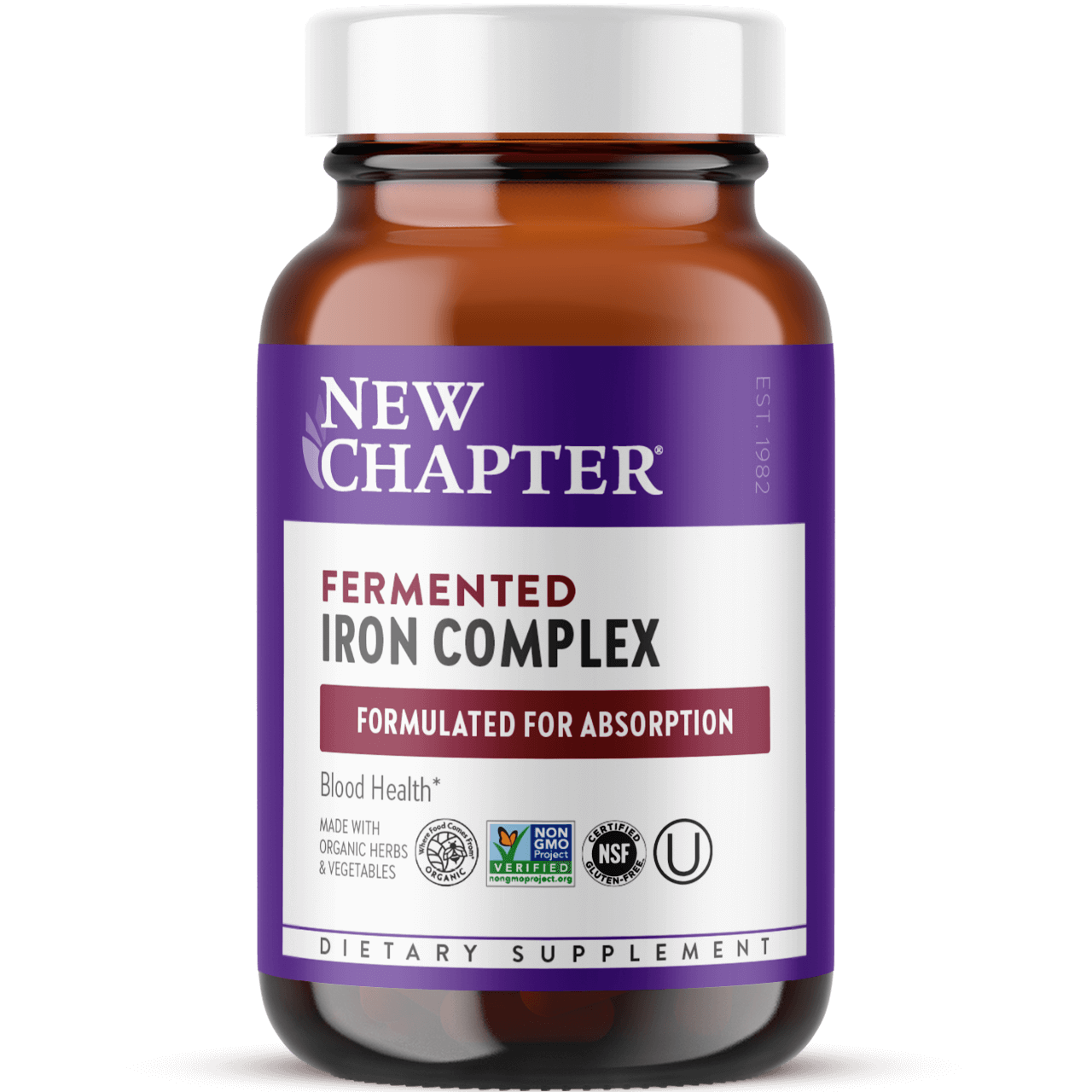A daily regimen for the new chapter of your life.
For when you’re pregnant or planning to be.
We’ve got you, new mama.
Choosing the best prenatal multivitamins for you.
- Advanced Perfect Prenatal multivitamin includes 23 vitamins and minerals and is made with organic vegetables & herbs, all in 3 nutrient-packed tablets
- One Daily Prenatal is formulated with over 100% DV of Methylfolate (the most active form of Folate) and includes Choline, an essential nutrient for pregnancy
- One Daily Prenatal 35+ also has Methylfolate & Choline, plus higher levels of Vitamins C, D3, E, B6, B12, Zinc, Magnesium & Chromium for the needs of moms 35+
Moms-to-be love that all three of our prenatals are gentle even on an empty stomach and include a clinical dose of Ginger to soothe morning sickness.*

Q&A: Prenatal & Postnatal
What is in a prenatal vitamin?
Goodness for mom and baby! New Chapter’s Perfect Prenatal supplement contains Folate (including Methylfolate, the most active form), Iron, Iodine, Calcium, and other important vitamins and minerals. These help nurture your body while providing a healthy environment for your baby to grow and develop. For example, Calcium is helpful for both mom and baby to support bone growth. Iron also supports both mom and baby by helping carry oxygen through the blood.
Let’s talk when to take prenatal vitamins.
It's recommended to start taking pregnancy supplements, like a dedicated multivitamin, before conception. Wondering why? It’s because that first month of pregnancy, before many moms-to-be even know they're pregnant, is crucial to the baby's development. The baby's neural tube (which becomes the brain and spinal cord) develops during this first month. So, if you’re planning to be pregnant, it’s a good idea to start your daily regimen of valuable prenatal vitamins including Methylfolate or fermented Folic Acid.
Are vitamins and supplements FSA/HSA eligible?
Yes! Prenatal vitamins are generally eligible for FSA/HSA reimbursement during pregnancy, meaning you could pay for them with funds set aside either through your employer or through your health insurance plan.
- A Flexible Spending Account (FSA) is an employee benefit that lets you set aside pre-tax dollars to use for qualified healthcare expenses. If you elect to have this benefit through your employer, you should be able to use your FSA to cover prenatal multivitamins during pregnancy.
- A Health Savings Account (HSA) is an investment account for those enrolled in a High Deductible Health Plan (HDHP). These funds may be used to pay for qualified medical expenses such as prenatal multivitamins during pregnancy.
In general, you can either use your FSA/HSA card to purchase your prenatal vitamins or submit a copy of your receipts to your plan administrator for reimbursement. Some other types of vitamins may be eligible if they are prescribed by a medical provider for a specific medical condition. Check with your healthcare professional and your plan administrator for details.
Why are postnatal vitamins important?
New Chapter postnatal vitamins include Vitamin D3, Vitamin B6, and Vitamin B12—essentials to keep both mom and baby healthy. While some doctors recommend women continue taking their prenatal vitamin after the baby is born, postnatal supplements have added nutrients to support new moms, whether or not you’re breastfeeding. Plus, our postnatal vitamins help support energy and proper immune system function.* That’s important for busy new moms!
What vitamins should I take while breastfeeding?
Our postnatal supplements have got you covered! Vitamin D3, Vitamin B6, Vitamin B12, and Iron are essential vitamins for mom and baby while breastfeeding. Look for a prenatal or postnatal multivitamin that delivers these vitamins, like New Chapter Perfect Postnatal. They help with red blood cell production, energy, and more. Plus, they include targeted herbal blends, too. Nursing moms can also take an Omega-3 supplement that provides good fats for baby’s healthy brain and eye development.*



